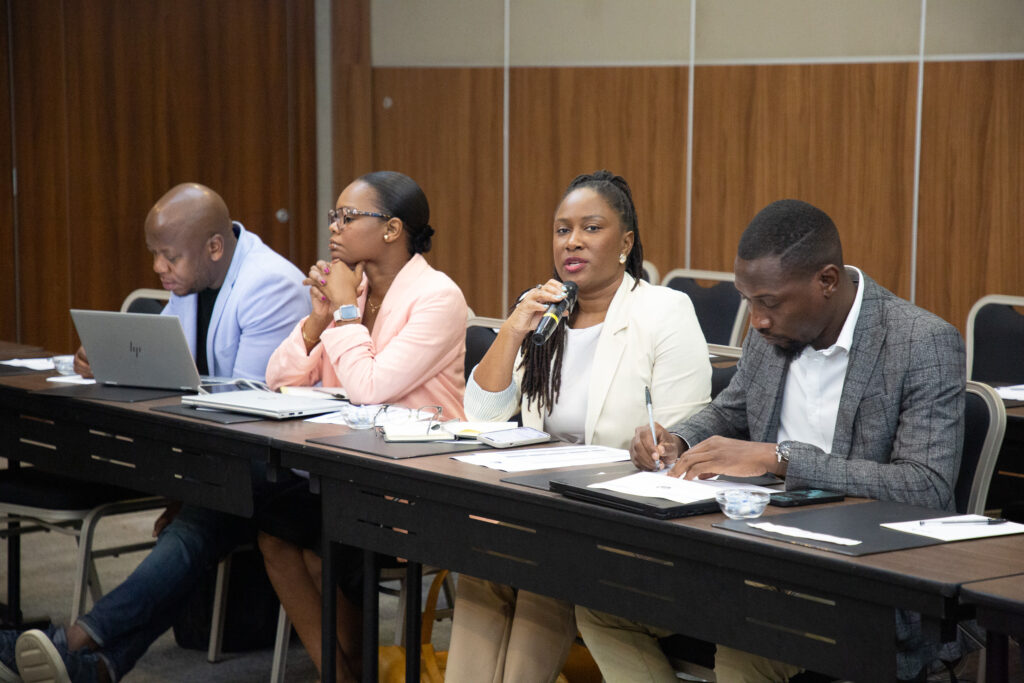- Officials from Mozambique and GCIEP held a planning workshop on 5 June focused on Green Climate Fund (GCF) readiness.
- As the world's largest climate fund, GCF accelerates climate action in developing countries through a country-owned partnership approach.
- The workshop supported strategic planning in Mozambique's Ministry of Planning and Development to design a readiness proposal for the GCF.

Government officials discuss plans for a Green Climate Fund readiness proposal.
Officials from the Ministry of Planning and Development in Mozambique, held a joint planning workshop with the Green Cities, Infrastructure and Energy Programme (GCIEP) on 5 June in Maputo.
The event brought together the Advisory Committee of the Climate Finance Office (a part of the Ministry), composed of representatives from the public and private sectors, as well as other stakeholders.
The main goal of the workshop was to structure a new Green Climate Fund (GCF) readiness support proposal in a participatory manner, based on national priorities and previously identified needs (highlighted during a GCIEP event held in April).
As the world’s largest climate fund, GCF accelerates transformative climate action in developing countries through a country-owned partnership approach and use of flexible financing solutions and climate investment expertise. Specifically, it aims to assist the least developed and most climate-vulnerable countries in designing mitigation and adaptation projects through its Readiness and Preparatory Support Programme (the Readiness Programme).
Participants in the planning workshop identified and discussed potential obstacles for accessing climate funds. These included challenges found in Mozambique and many other countries:
- A shortage of trained human resources
- Language barriers
- Terms of reference poorly adapted to the local context
- Weaknesses in project monitoring and evaluation mechanisms
The workshop was attended by a representative of the British High Commission in Mozambique, Markus Weiman, responsible for Public Finance and Public Services. He emphasized that the Readiness Programme represents a strategic opportunity for developing countries like Mozambique, as it strengthens institutional capacities and improves coordination and planning mechanisms. Mr Weiman also underlined that for the proposal to be successful, it must reflect national priorities, be led by Mozambique, and include the country's aspirations in an inclusive and participatory way.
Also in attendance was Albano Manjate, National Director of the Climate Finance Office, who stated that this exercise will help better prepare public and private institutions to be ready to implement the national climate agenda. He emphasized the need to plan in a coordinated and integrated manner, avoiding fragmented proposal submissions, and ensuring the capacity to mobilize resources not only from the GCF but also from other international donors.
The workshop concluded with the development of strategic proposals and the Theory of Change, an essential element for structuring the readiness proposal to be submitted to the GCF.
The UK’s Green Cities, Infrastructure and Energy Programme is tackling climate change and extreme poverty by accelerating the delivery of sustainable green cities and climate-resilient infrastructure.
Published
08/07/25
